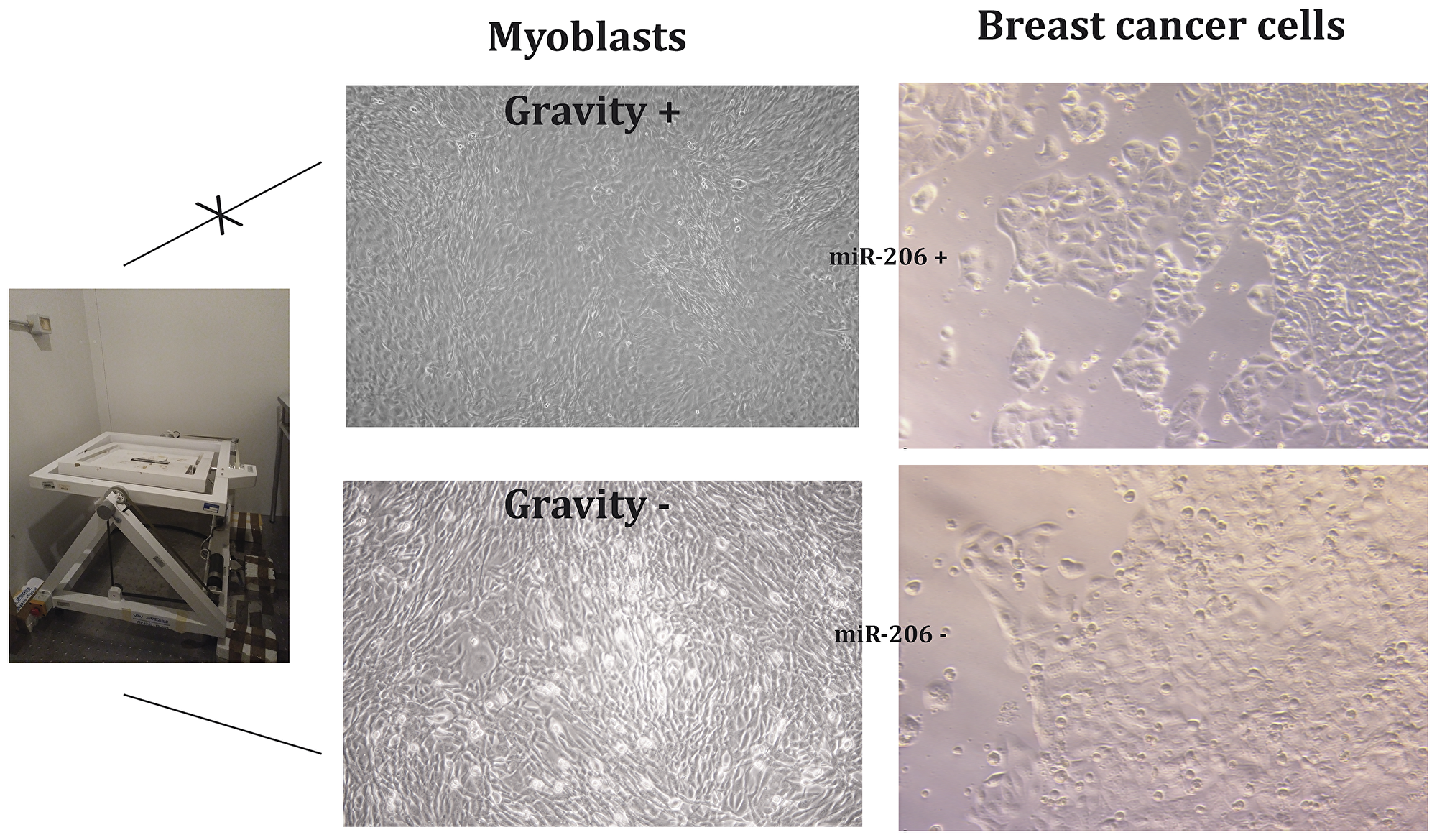Volume 11, Issue 22 of Oncotarget reported that the goal of this study was to explore the involvement of mi RNAs in beneficial effects exerted by physical activity in breast cancer prevention.
The levels of extracellular mi RNAs were evaluated in blood plasma before and after structured exercise by means of microarray analysis of 1,900 mi RNAs identifying mostly modulated mi RNAs. The different expressions of two mi RNAs involved in breast cancer progression, i. e. up-regulation of mi R-206 and down-regulation of anti-miR-30c, were the most striking effects induced by exercise.
The biological effects of these mi RNAs were investigated in MCF-7 human breast cancer cells.
The evaluation of these mi RNAs in the blood can be used as non-invasive biomarkers for breast cancer prevention.
Dr. Alessandra Pulliero from the Department of Health Sciences at The University of Genoa said, "The relevance of structured exercise for public health has been addressed by the World Health Organization, and its lack is estimated to be the main risk factor for 21–25% of breast and colon cancer cases, 27% of diabetes cases, and 30% of ischemic heart disease cases."
Breast cancer survivors engaging in structured exercise increase the drainage of lymph from their upper limbs, thereby decreasing the side effects of mastectomy, significantly lowering their risk of cancer relapse and improving their immune functions.
Structured exercise improves insulin resistance, reduces hyperinsulinaemia and reduces the risk for diabetes, which could explain the link between increased structured exercise and reduced risk for these cancers.
Recent findings indicate that women with a history of breast cancer who engage in more than 9 metabolic equivalent h/week of structured exercise after a breast cancer diagnosis had a significantly lower risk of death or breast cancer recurrence than women who were physically inactive.
"women with a history of breast cancer who engage in more than 9 metabolic equivalent h/week of structured exercise after a breast cancer diagnosis had a significantly lower risk of death or breast cancer recurrence than women who were physically inactive"

Figure 4: Myoblasts stimulated by gravity (G) release miRNA-microvesicles inhibiting breast cancer cell growth.
Incubation of MCF-7 estrogen-responsive breast cancer cells and MDA-MB-231 triple-negative breast cancer cells treated with post-exercise serum, from both healthy volunteers and operated cancer patients resulted in a reduction of breast cancer cell viability in comparison with breast cancer cells incubated with pre-exercise sera.
Accordingly, the authors analyzed circulating mi RNAs expression profiles before and after structured exercise and evaluated their potential anti-cancer properties in breast cancer cells.
The Pulliero Research Team concluded in their Oncotarget Research Article, "this study provides evidence that miRNA modulation is a specific molecular mechanism through which structured exercise exerts preventive effects against cancer. The possibility of using these two miRNAs for breast cancer prevention is of interest. MicroRNA as delivered by lipid nanoparticles has been already been effective in mice in preventing NNK induced lung cancer [46]. However, insofar no similar experiments exist as far as concern breast cancer prevention.
Moreover, the evaluation of miR-206 and anti-miR-30c levels in the blood of breast cancer patients could be useful as non-invasive biomarkers in guiding future strategies for cancer prevention."
Sign up for free Altmetric alerts about this article
DOI - https://doi.org/10.18632/oncotarget.27609
Full text - https://www.oncotarget.com/article/27609/text/
Correspondence to - Alessandra Pulliero - [email protected]
Keywords - circulating microRNAs, sports and exercise, carcinogenesis, cancer prevention, microRNA transfection
About Oncotarget
Oncotarget is a biweekly, peer-reviewed, open access biomedical journal covering research on all aspects of oncology.
To learn more about Oncotarget, please visit https://www.oncotarget.com or connect with:
SoundCloud - https://soundcloud.com/oncotarget
Facebook - https://www.facebook.com/Oncotarget/
Twitter - https://twitter.com/oncotarget
LinkedIn - https://www.linkedin.com/company/oncotarget
Pinterest - https://www.pinterest.com/oncotarget/
Reddit - https://www.reddit.com/user/Oncotarget/
Oncotarget is published by Impact Journals, LLC please visit http://www.ImpactJournals.com or connect with @ImpactJrnls
Media Contact
[email protected]
18009220957x105


